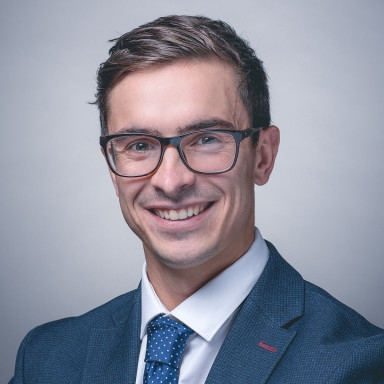James Harries is a highly experienced income manager with an enviable track record
Sheltering investors’ wealth when markets are volatile is the overarching focus of Troy’s approach
Significant changes have been made to the trust since Troy took charge in November 2020
How it fits in a portfolio
STS Global Income & Growth aims to deliver long-term income and capital growth. The manager looks to grow the income consistently over time rather than seeking higher but potentially unreliable yields and focuses on high-quality companies. He believes investing for income globally is optimal as it provides a broader hunting ground than one country or region.
Given its focus on quality, this trust could work well alongside investments in out-of-favour companies with recovery potential – also known as ‘value’ investing. It could also complement those targeting greater growth that don’t tend to pay dividends. Its global reach may also add diversification to an income-focused portfolio.
Manager
Martin Currie was responsible for managing the trust since launch in 2005 but following the departure of manager Mark Whitehead the Board looked elsewhere for a replacement.
Troy Asset Management was appointed as the new investment manager in November 2020 with senior fund manager James Harries at the helm. Prior to joining Troy in 2016, Harries worked at Newton Investment Management (who are owned by BNY Mellon) where he managed global income funds from 2002 onwards. Harries is one of the most experienced global income managers around and we hold him in high regard.
Harries also manages Troy Trojan Global Income, an open-ended fund that invests in a similar way to this trust. This fund currently features on our Wealth Shortlist of funds selected by our analysts for their long-term performance potential. He’s also co-manager of the recently launched Troy Trojan Ethical Global Income fund. Given the cross-over between these three portfolios we believe Harries is comfortably able to manage his time appropriately. We think he’s got one of the strongest track records in the sector, and we like his simple, disciplined, and patient investment style.
Tomasz Boniek supports Harries on his hunt for quality companies around the globe. He joined Troy from Susa Fund Management in 2017 and holds an MBA from the London Business School.
Process
Harries’ approach has all the hallmarks of a Troy fund – a focus on large, financially sound companies, that have shown their resilience through both good and bad times for the wider economy. He has scope to invest anywhere in the world but tends to favour developed markets, such as the US, the UK and Europe. Although he can invest in higher-risk emerging markets, he tends to avoid them, preferring companies that sometimes sell their products in these regions.
His team pay close attention to free cash flow, a key measure of dividend sustainability. It shows what’s left over from running operations that can then be used for other purposes like paying a dividend, buying back shares, or reducing debt obligations. A company that generates healthy levels of free cash flow will, in theory, be able to sustain, or even increase how much they return to shareholders.
Every holding must pay a dividend, but the fund doesn’t have an income target. Harries is more focused on total return, a combination of income and growth, than income alone and won’t chase an unsustainable yield that is potentially damaging to long-term returns.
This is a concentrated portfolio of between 30-50 holdings. That means each company can have a significant impact on performance, although it’s a higher-risk approach. Sector-wise consumer staples, technology and healthcare are where the manager finds the most opportunity.
When making any investment, the long-term is at the forefront of the team’s analysis. They don’t tend to react to short-term blips in the stock market or wider economy, preferring a low turnover approach, which means new purchases and sales are kept to a minimum. Only a few new ideas are considered each year, and the manager only sells shares if he feels the outlook has changed, the company becomes too highly valued, or he finds a better idea elsewhere. Troy conducted a spring clean when they assumed management in November 2020, resulting in significant changes to the underlying holdings in order to bring it in line with their approach.
Over the past 12 months, Harries has made the exact same changes to the trust as he did with the open-ended fund which he runs is a very similar way. Several new companies were added to the trust. Notably, he bought US pest control company Rentokil. It has a new management team who have refocussed the business on its core market. He also bought Danish healthcare company Coloplast and German conglomerate Siemens.
To fund these additions Harries sold out of UK fast food company Domino’s. It has a new CEO from Domino’s Australia who has sparked rumours that it may look to take over a competitor. Harries isn’t sure how it will fund this takeover so has decided to be cautious and sell the position. Since selling, Domino’s’ share price has fallen but will remain a company he keeps an eye on. Harries also sold US consumer goods company Procter & Gamble. The company had been performing well but Harries thinks it’s now too expensive and there are better ideas elsewhere.
Investors should be aware that the manager has flexibility to use derivatives and gearing (borrowing to invest) which, if used, adds risk. As at the end of January 2025 gearing stood at 5%.
Culture
STS Global Income & Growth was established in 2005 and is a constituent of the FTSE SmallCap index. It’s currently managed by Troy Asset Management, an independent ‘boutique’ investment company. The majority of the business is owned by the managers and fund managers. We view this positively, as it means both the business and the funds are run with a very long-term view and managers’ interests are aligned with investors.
Sheltering investors’ wealth has always been the most important thing at Troy. The managers believe that’s the best starting point for growing wealth over the long term. All Troy funds are run along the same lines – disciplined and patiently investing in a small number of high-quality holdings. Managers of different Troy funds all contribute to the thorough research of around 200 companies deemed suitable for Troy portfolios, creating a collegiate environment.
ESG integration
James Harries aims to identify and analyse factors which will impact the long-term profitability of a company, including environmental, social and governance (ESG) factors. They maintain close interaction with company management to ensure that they are taking their ESG commitments seriously. Although ESG is a consideration, this is not an ESG trust and when looking at companies the overall risk-return potential is considered more important.
Troy has been formally incorporating ESG into its investment processes for several years and came from a very strong starting point. The firm’s always been focused on the sustainability of returns and is a long-term investor. In recent years Troy’s investment team has formalised the way it incorporates ESG and the way it talks to investors about it. ESG is integrated using a materiality-based approach, meaning the managers focus on the issues they deem to be most material. They also have access to third party ESG data and research. How analysts and fund managers engage with ESG, and the overall quality of their research, is considered when calculating their incentivisation packages.
Engagement and voting are the responsibility of the investment team. All votes are discharged, and usually cast in favour of management proposals unless the team believes investors’ interests are better represented by abstaining or voting against management. Their preferred course of action is to have dialogue with management ahead of casting a vote against. The firm provides a proxy voting portal where investors can see every vote exercised, although no rationales are provided. That said, Troy publishes a summary of its ‘significant’ votes in its annual ‘Engagement and Voting Disclosure’ report, along with rationales for voting both in favour and against proposals. The firm also produces a quarterly Responsible Investment report, which includes voting and engagement updates and case studies
Cost
The net ongoing annual charge for the trust’s last complete financial year (end of March 2024) was 0.96%, a marginal increase from 0.94% in 2023. This makes it one of the more expensive trusts in the AIC Global Equity Income sector. Whilst higher charges create a bigger hurdle to deliver positive returns, we recognise the value the manager’s added above these charges throughout his career. Investors should refer to the latest annual reports and accounts and Key Information Document for details of the risks and charging structure.
If held in a SIPP or ISA the HL platform charge of 0.45% (capped at £200 for a SIPP and £45 for an ISA) per annum also applies except in the HL Junior ISA, where no platform fees apply. The platform charge doesn’t apply if the trust is held in a Fund and Share Account.
Investment trusts trade like shares, both a buy and sell instruction will be subject to the HL share dealing charges within any Hargreaves Lansdown account, except online in the HL Junior ISA.
Performance
Since the STS Global Income & Growth trust launched in June 2005 and to the end of January 2025, it’s returned 372.96%* vs 380.59% for the AIC Global Equity Income sector. However, for most of this period it was managed by Martin Currie with a different approach.
Harries has an enviable long-term track record managing global income portfolios. Since becoming manager of this trust in November 2020, its share price has grown by 36.58% to the end of January 2025, marginally behind the AIC Global Equity Income peer group which returned 38.95%. The Net Asset Value (NAV) has risen by 37.20% over the same period. This is a short amount of time though and remember past performance is not a guide to the future. All investments will fall as well as rise in value so you could get back less than you invest.
Over the last 12 months to the end of January 2025, the trust’s share price has risen 12.75%. This compares to an increase of 18.33% for the AIC Global Equity Income peer group. The trust’s NAV also increased 13.20%.
The trust’s investments in alcoholic beverage companies Pernod Ricard and Diageo disappointed. Pernod Ricard demand has slowed down especially in China where consumers remain cautious with their spending. Japanese gaming company Nintendo and Canadian freight railway company Canadian National Railway Company also detracted over the last 12 months.
It wasn’t all bad news though. Harries’ investment in tobacco companies Phillip Morris and British American Tobacco were some of the biggest contributors to performance after both grew sales in 2024. British consumer company Unilever also performed well as did InterContinental Hotels Group after a strong financial year.
It’s also worth noting that a discount control mechanism was introduced when Troy took over to ensure the net asset value (NAV) and share price don’t stray too far from each other. At the time of writing the trust trades at a discount of -1.36%. On average since Troy took over the trust in November 2020 the trust has traded on average at a -0.21% discount. The trust currently has a yield of 2.68%, although remember yields are variable and not guaranteed or a reliable indicator of future income.
Annual percentage growth
Jan 2020 To Jan 2021 | Jan 2021 To Jan 2022 | Jan 2022 To Jan 2023 | Jan 2023 To Jan 2024 | Jan 2024 To Jan 2025 | |
|---|---|---|---|---|---|
STS Global Income & Growth Trust | -0.44% | 16.06% | -0.98% | 6.84% | 12.75% |
AIC Investment Trust - Global Equity Income | -0.51% | 10.76% | -4.16% | 7.24% | 18.33% |


